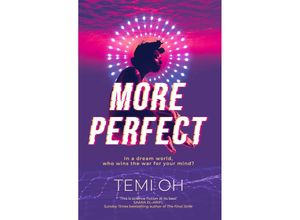'A spectacular exploration of the power of technology... science fiction at its best' Saara
El-Arifi Sunday Times bestselling author of The Final Strife What does it feel like to wake
up in the Panopticon? It's like waking up for the first time ever. It's like waking up with a
third eye. When Moremi connects her brain to the Panopticon a network which allows you to
see inside the minds and dreams of others she believes that it will save her from depression
loneliness and eventually death. That is until she meets Orpheus. Orpheus was brought up in
isolation by a Neo-luddite father. He was raised to question everything including the
government who plan to make the connection procedure compulsory. They promise that connecting
everyone to the Panopticon will end human suffering and usher in a more perfect world. But when
Orpheus and Moremi uncover the dark side of the technology they find themselves on opposite
sides of a radical divide between those who believe that the Panopticon will save humanity
and those who will stop at nothing to destroy it. More Perfect is The Circle meets Inception
in an immersive and futuristic story that explores love loneliness and the limits of
technology's ability to save a humanity who might not want to be saved. 'A fascinating story
that never shies away from the contradictions in human nature' Guardian 'An unnervingly
believable struggle for the future. The story of Moremi and Orpheus has classical antecedents
but with a satisfying eye for the future' Booklist 'Tightly crafted weaving science fiction
mythology and more to tell a tale that feels pertinent right now' Kirkus Reviews 'The London
you encounter in Temi Oh's More Perfect is grittily familiar - making the near future she
paints queasily plausible... It weaves an intriguing tapestry of references from the classical
story of Eurydice to the neuroscience of consciousness set against a drumbeat of dread' New
Scientist 'A high-octane journey with deeply moving stakes' Oprahdaily.com Best Sci-Fi books
of the Summer 'Feverishly inventive' The Washington Post

